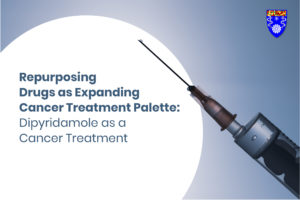Introduction
Myelodysplastic syndromes (MDS) refer to hematologic malignancies characterized by ineffective hematopoiesis leading to cytopenias and bone marrow failure. Hypomethylating agents (HMA), such as decitabine and azacitidine, have become the standard of care for treating high-risk MDS due to their ability to improve cytopenias, reduce the risk of progression to acute myeloid leukemia (AML), and improve overall survival. However, their use in low-risk MDS patients is less well-established, and the optimal dosing strategy for HMA in these patients remains unclear.
Recent studies have suggested that low-dose HMA may be effective and better tolerated in low-risk MDS patients. This approach has the potential to provide long-term disease control while minimizing adverse effects and maintaining the quality of life.
This blog post aims to overview the current literature on using low-dose HMA in low-risk MDS patients.
What are Hypomethylating Agents?
Decitabine is a drug that inhibits DNA methyltransferase to treat acute myeloid leukemia (AML). The maximum tolerated dose (MTD) was identified nearly three decades ago at 1.5-2 g/m2/course. However, these doses led to disappointing outcomes. The drug was restudied using pharmacodynamics to modulate the amount instead of the MTD.
The dose was selected based on gene expression-based pharmacodynamic markers of estrogen receptor 1 and cyclin-dependent kinase inhibitor 2B. A 20 mg/m2/day dose for 10 days was clinically effective. The European Medicines Agency approved the drug for treating AML in older adults, and the FDA for myelodysplasia at a lower dose of 20 mg/m2/day.
The study reports the long-term follow-up of phase 2 multicenter trial of reduced-intensity therapy in patients with low- and low-intermediate-risk myelodysplastic syndromes (MDS) who had not received prior hypomethylating agent (HMA) treatment. The trial randomized patients to receive either decitabine or azacitidine, and therapy was continued indefinitely in responding patients.
Clinical Study
113 patients were enrolled, including 16 with chronic myelomonocytic leukemia and 6 with MDS/myeloproliferative disease overlap syndrome. The overall response rate was 67% decitabine versus 48% azacitidine (P=0.042). Complete remission rates were 36% with decitabine and 35% with azacitidine, and rates of hematologic improvement were 23% versus 8%. Among 59 transfusion-dependent patients, transfusion independence was more frequent with decitabine.
At a median follow-up of 68 months, approximately half of the patients had maintained response at 12 months and one-fourth at 24 months; the median overall survival for the entire group was 33 months. TP53 mutation was associated with complex karyotype and progression to acute myeloid leukemia.
This study suggests that decitabine may be more effective than azacitidine in inducing overall response and transfusion independence in patients with low- and low-intermediate-risk MDS. Additionally, the study highlights the importance of mutational profiling of myeloid-related genes in predicting outcomes, with TP53 mutation being associated with complex karyotype and progression to acute myeloid leukemia. The long-term follow-up data also suggest that a significant proportion of patients maintain response to treatment beyond 12 months, and the median overall survival for the entire group was 33 months.
Conclusion
In conclusion, the use of low-dose hypomethylating agents (HMA) such as decitabine and azacitidine has become a standard of care for the treatment of high-risk myelodysplastic syndromes (MDS). However, recent clinical trials have also shown promising results for using these agents in patients with low- and low-intermediate-risk MDS who have not received prior HMA treatment.
These studies have demonstrated that these patients can achieve high overall response rates, with a substantial proportion achieving complete remission or hematologic improvement. The prolonged treatment with HMAs has also been shown to sustain the response rate in responding patients, with favorable effects on transfusion dependence and overall survival. Therefore, low-dose HMA therapy represents a promising therapeutic option for patients with low- and low-intermediate-risk MDS and warrants further investigation in larger randomized controlled trials.
Get Safe and Efficient Low-Risk MDS Treatment in Texas
We understand the challenges of dealing with cancer. That’s why we are here to help you manage this lifelong condition.
Suppose you have been Google searching “MDS low-risk near me” or “HMA treatment near me” hoping to find a medical facility that provides low-dose hypomethylating agents for Myelodysplastic Syndromes (MDS). We can say with certainty you’ve come to the right place.
Our expert oncologist Dr. Zhang specializes in treating and managing cancer with years of experience and a proven track record. He has helped many individuals regain control over their lives against cancer using low-dose hypomethylating agents for Myelodysplastic Syndromes (MDS).
Dial 7137971900 to book an appointment today.



